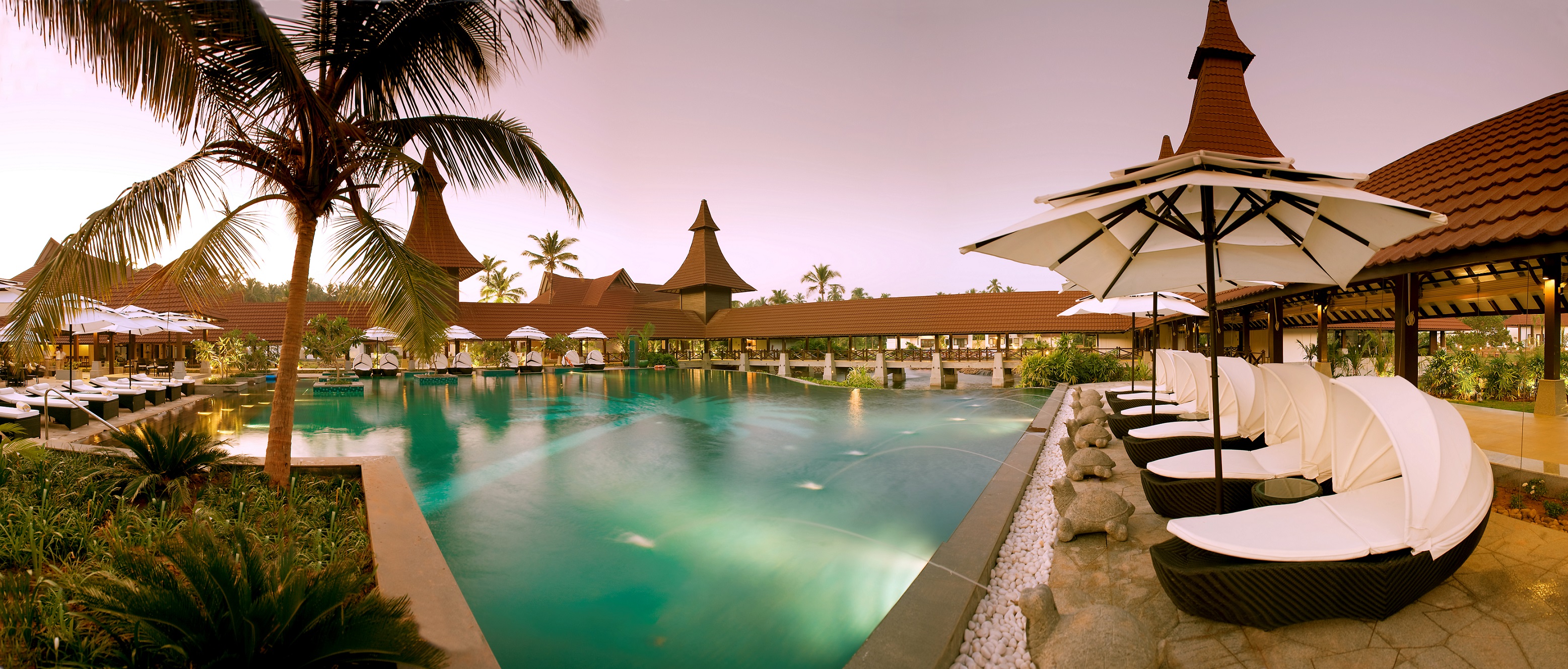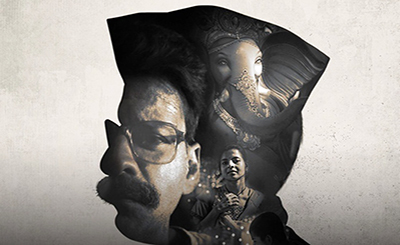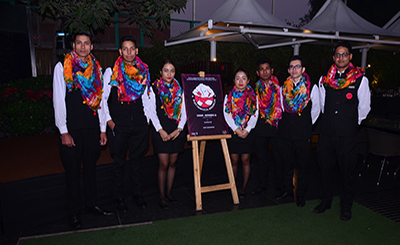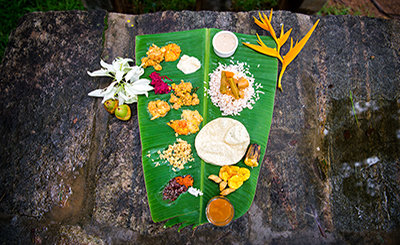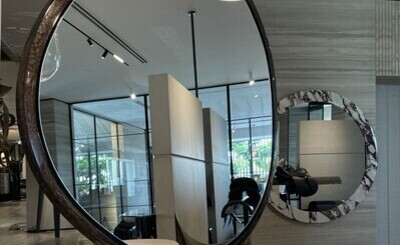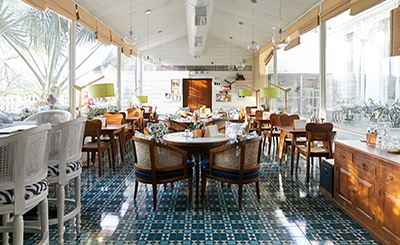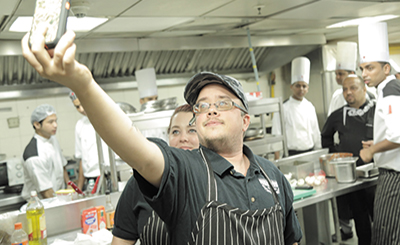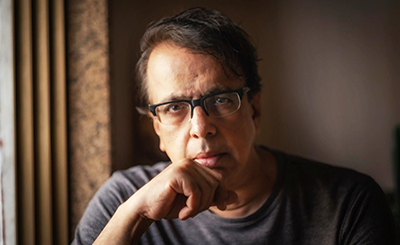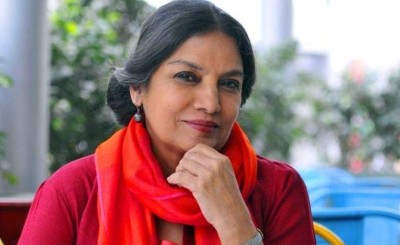Keshav Suri, executive director at The Lalit Suri Hospitality Group, says he would like to be known as somebody who opens people’s minds
If hospitality is akin to an artistic enterprise, Keshav Suri, executive director at The Lalit Suri Hospitality Group, has the makings of an impresario, attuned to the demands of the profession, and the demeanours of hundreds of thousands of its performers who act as cog-wheels to enable the enterprise to operate. If it’s his empire, he acts less like an emperor and more like a magnate, a virtuoso, with a charmed circle of admirers, as an empathetic entrepreneur you can confide in, a boisterous baron you can share a laugh with or a culture aficionado you can exchange tips with in fashion, movies, music or style.
As someone who has been brought up amid the comforts of the lux life, the heir apparent of The LaLiT legacy is constantly trying to redefine opulence, ensuring that those who walk through the doors of The LaLiT, see themselves in the lap of luxury, with the reception accorded to them being such that makes them feel elevated to a heightened state of being, and their minds growing increasingly aware of the richness and beauty of life in the fast lane. Responsible for Food and Beverages (F&B), Keshav Suri doesn’t merely oversee the stuff on the menu and what goes in the glass, but also the motifs, the designs and the service across the group’s properties. He has also been entrusted with developing strategies for expansion and handling the chain’s marketing divisions, focusing his energies on creative synergies, galvanising individuals into action, inspiring them to strive, to serve, to excel. In the process, he ensures that every corner of his properties reflects class — at its glorious best.
The Son, the Sibling
For the 32-year-old scion of the group, these are traits — besides empathy, congeniality and conviviality, the ability to adjudge the way things should be, the way things should look, feel, sound, smell and taste — that run in the family. His father, Lalit Suri, who passed away in 2006 (November 19 marks his 71st birth anniversary), took a Suri-shot stab at success when he became someone for whom the sobriquet, “the uncrowned hotel king,” came to be reserved. A hotelier and a politician, Lalit Suri was the chairperson and managing director of Bharat Hotels Limited (which became The Lalit Suri Hospitality Group after his untimely demise in London), with the group having decided against renewing the management contract with the US-based Intercontinental Hotels Group.
Lalit Suri’s life, filled with many a milestone, exemplified the idea of a hotelier as the “champion of the industry”. The group’s founder, who started as an auto engineer — having done a two-year specialisation in automobile engineering with Vauxhall Motors, Britain — went on to own a fleet of high-end cars. Joining the family-run Delhi Automobile Ltd in 1971, he also ended up owning several top line hotels in the country, with the Suri group having diversified into hotels in 1982. He was highly regarded in the Indian and international community for his discerning eye, dynamism and foresight. In February 2000, he was among the three-member core group of hoteliers under whose patronage World Travel & Tourism Council, India Initiative (WTTCII) was launched to raise awareness about the crucial role that travel and tourism play in the development and growth of the economy in India. The other two members were Prithviraj Raj Singh “Bikki” Oberoi and RK Krishna Kumar (of The Indian Hotels Company Limited or IHCL, branded as Taj Hotels Palaces Resorts Safaris).
“It was a big shock to our family. It took us a while to figure out how to take the company forward,” says Keshav, talking about his father’s death. After Lalit Suri’s demise, the mantle fell on his wife, Dr Jyotsna Suri, the current Chairperson & Managing Director (CMD) of the group. It was on November 19, 2008 that she decided to go for brand change for the company, bringing all luxury hotels of the group under the The LaLiT flag as a tribute to the company’s founder. Today, under her able stewardship and guidance, the group has emerged as the largest privately owned hotel chain in India, with 13 luxury hotels under its flag. The group’s first international foray, and the 13th hotel, The LaLiT London, was launched on Republic Day this year. The group is all set to launch its 14th hotel in Ahmedabad sometime next year. On the anvil is the group’s plan for further expansion. Much of this expansion will be under the mid-segment umbrella called ‘The Lalit Traveller’; its launch was flagged off by the group’s properties in Jaipur and Khajuraho.
The group’s CMD believes in “developing destinations and not just hotels” which leaves enough room for the “cultural awakening” of the region, providing it with several opportunities to showcase its handicrafts, culture and food — thereby enabling the hotel to carve its identity as “catalyst for cultural rejuvenation and energy” in the regions where its hotels are located. In 2013, she launched The Lalit Suri Hospitality School in Faridabad. Spread over 5 acres, it offers customised programmes in Hotel Management.
His mother, says Keshav, has been an “exceedingly strong boss”. “Within months, she got us activated, got the group consolidated and started the process of propelling the company to what it is today,” he says. Also instrumental in the group’s journey so far have been Keshav’s sisters, Divya and Deeksha, the group’s other two executive directors. Divya handles the group’s legal matters and Deeksha takes care of human resources, revenue management and sales. Keshav’s other sister, Shradha, is currently MD at Subros, another family concern which manufactures car air conditioners. “Together, we as a think tank for the company have actually tripled and quadrupled what my father left us with. And, so, it was just befitting that we would be naming the hotels after him,” says Keshav, who is all praise for his mother for being a “democratic leader” who let him choose his own path.
The Scion
After his father’s death, even as his mother steered the group in new directions, she ensured Keshav’s studies were not hampered. He graduated from the University of Warwick in business studies and majored in law from the School of Oriental and African Studies, University of London. He also did Masters in International Management from King’s College, London. “After finishing my studies, it was just a natural progression for me to come in to the family business. One of the reasons why my sisters and I never studied hospitality was that at the back of our minds we always knew that we were going to end up in hospitality. So, we decided to educate ourselves in something we will not end up doing,” says Keshav.
When the prodigal son returned, he wanted to work “outside” and, therefore, joined Unilever in Mumbai. Today, however, Keshav has established himself in the group as well as in the country. But the learning continues. “I’m still learning because in life you can never stop learning and if you stop learning, it’s the day you die. This is what I believe in personally and I know my family believes in the same,” he says. The values inculcated by his father — hard work, respect for every individual and attention to detail, for instance — have held Keshav and the family in good stead, showing them the way ahead.
Keshav says that his father always said that one of the reasons why he wanted to own all the assets and not just manage them was that when he was gone at least these buildings will stay and when people will remember the building, they’ll remember him. “That’s what we did. We called the hospitality chain after him. He was an exceedingly disciplined human being. He had a routine set and nothing would disrupt his discipline. It was his vision to live on in people’s minds forever in some way or the other and that’s the vision that we continue to pay homage to him. Nothing would have made that vision come alive than naming the whole group after him,” says Keshav.
The Great Eastern
Lalit Suri Hospitality Group bagged The Great Eastern, Kolkata, for Rs 52 crore from the West Bengal government in 2005. Keshav, the youngest on the company board, found his foothold in the industry with the careful and sensitive renovation of the 200-year-old heritage property. “It was among the last few acquisitions of my father. So, it hit home that I should make it come alive and make sure that it fructified. Plus, I’m very influenced by history, art and culture and nothing gets more historic than owning a historic building. And The Great Eastern is a part of Kolkata’s history. The pressure on my mother to restore this building alone was immense. When I saw her, I wrangled myself and said, ‘I’m going to come with you for this’. She knew that she did a great job because she’s always done a great job,” says Keshav, who adds that while the group had renovated many buildings during his father’s lifetime, there was added pressure to this building because this was actually a part of the city’s heritage. He says: “It was made as a hotel by a baker of Hertfordshire (David Wilson). He started as a bakery because he wanted to bake bread for the British Army and for the British people who were living in Kolkata. He bought the whole block so it became 1, 2, 3 Old Court House Street. From a bakery, it became one small hotel called Auckland Hotel. And then it became a much larger hotel which then eventually became the Great Eastern.” Keshav’s first project has seen massive restoration for 11 long years at the cost of about Rs 320 crore and remains a work-in-progress. The hotel was called “Jewel of the East” during the British Raj and played host to guests like Queen Elizabeth II, Rudyard Kipling and Mark Twain. “It was and is a big deal. It’s older than the Raffles in Singapore,” says Keshav. At the Great Eastern in Kolkata, the group has taken extra effort to keep the Victorian/Edwardian ethos intact with the Wilson pub and the grand piano adorning its premises.
Westward Ho!
Keshav also oversaw the launch of The LaLiT London, a 70-room boutique hotel nestled in a 180-year-old former grammar school (St Olave’s Grammar School, originally designed by Edward Mountford, the architect of the Old Bailey court) near Tower Bridge, which was thrown open early this year after a five-year, £50-million refurbishment. It was Lalit Suri’s dream to open a hotel in London. With The LaLiT London, his dream was fulfilled. Among those who came to raise a toast were actors Steven Berkoff, Amy Jackson, Clara Paget, Luke Pasqualino, and models Ashley James and Roxy Horner. The LaLit London blends East with West. While its exterior is Western, the interiors of the 70 guestrooms (numbered as classrooms) exude the Eastern sensibilities reflected in the choice of Indian furnishings. Two beautiful bars — The Teachers’ Room and The Headmaster’s Room — boast intricately restored, carved ceilings and an original fireplace. And, of course, there is the chain’s signature pan-Indian restaurant, Baluchi, at The Great Hall, featuring cuisines from Kashmir to Kanyakumari. The launch in London was preceded by the launch of The LaLiT Mangar, on the outskirts of Delhi, which has been designed as an experiential, eco-friendly retreat.
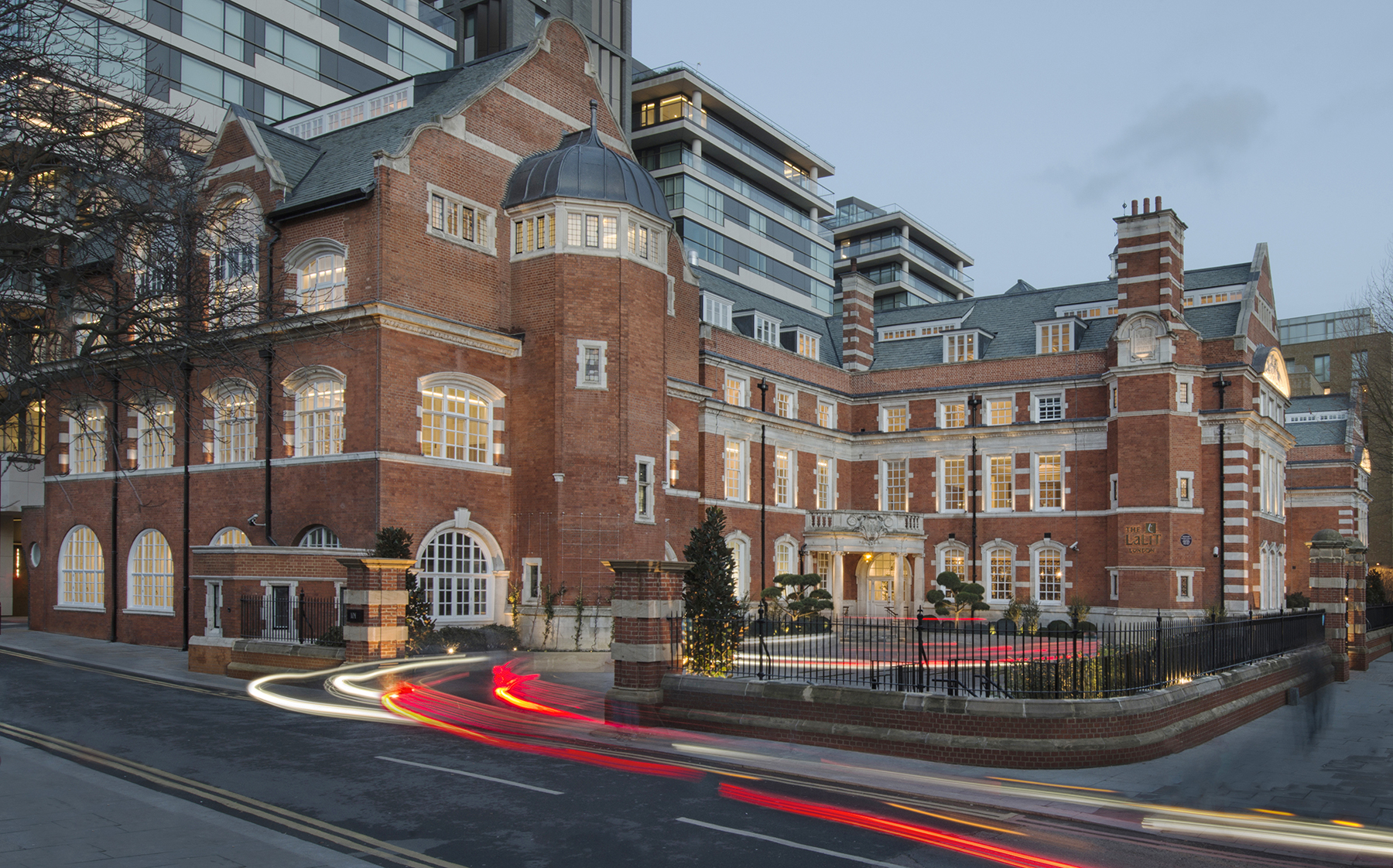
The slices of luxury at The LaLit London are some of the Indian imports: the peacock and elephant motif tapestries, the blue cobalt Hyderabadi chandeliers, the jaali-work wooden screens — all shipped from India.
.jpg)
The Club Connect
Perhaps Keshav’s greatest achievement has been the way he gave shape to the avant garde nightclub Kitty Su, which was started in 2011. It is the only Indian nightclub to be featured in DJ Mag’s list of top 100 nightclubs in the world. A posh, multi-level nightclub, it boasts of resident DJs who belt out electronic, progressive house and trance even as guest DJs hold regular gigs, playing their signature music. It’s a place where Dom Perignon vintage flows — and people, especially the marginalised, mingle — freely. The place has been designed as an “urban music shrine” where the past and present meet in joyous whorls, brought alive in its décor — earthy shades, dark wooden floors and evocative sculptures inspired from Khajuraho’s temple art.
Kitty Su has been a hit in Delhi, Mumbai and Chandigarh. The group is testing waters in Bengaluru and Kolkata with Kitty Su pop ups that are monthly affairs. In Bengaluru, the pop-up is done at Oko, the Pan-Asian restaurant’s outdoor area, and is called Kitty Ko. “It was a lot of hits and misses and permutations and combinations and energies that made Kitty Su what it is today,” says Keshav, who is doing his bit to change the narrative, challenging the society’s idea of normal.
“When I launched Kitty Su in 2011, the party culture was very different from what it is now. However, Kitty Su was and continues to be way ahead of its times. It is the all-welcoming and discerning nature of Kitty Su that makes it the party behemoth it is,” says Keshav. “The several rooms at Kitty Su create space for all genres of music and parties. We host international DJs and artists, but what really tops the chart is the all-inclusive policy of the club. We host special meets for the differently-abled, have curated CU Next Thursday for the marginalised communities and now Kitty Su is gaining popularity for having introduced performing arts in this space. It has started a revolution by introducing drag culture in the country and creating opportunity for performance artists,” says Keshav.
In August this year, Keshav brought down a famous drag queen, Violet Chachki, to Delhi. He took to social media to express his views on the issue of gay pride and his solidarity with and support for the cause. “Not only my dream come true but helping me wake up an entire generation that #lgbtq lives do matter! Till we are not recognised and mainstreamed in India, I will not rest. Thank you to everyone who turned up on the 19th of August, there is strength in unity! Now let’s start the revolution of love!” he exulted on the occasion.
The idea is to transform the way we party and perform. In November, the winner of Ru Paul’s Drag Race All Star’s, Alaska Thunderfuck 5000, performed in Mumbai and Delhi to mark a decade of the Gay Pride Parade.
Recently, Roveena Tampon, a play on Raveena Tandon, the drag persona of Rovin, who performed for the Halloween party at Kitty Su at The LaLiT Chandigarh, said: “Keshav is the maharani of the drag empire and we are all his queens.” While drag artists are respected for their craft in Western countries, India remains far from acknowledging it as an art form, with such artists struggling to be accepted as entertainers.
Whenever Keshav needs to drag himself from comfort zone, he opens something like Kitty Su. “We’ve just hired DJ Varun Khullar aka Aamish Underground, India’s first differently abled DJ, who is now a resident DJ at Kitty Su. We are working very closely with the transgender community. We have a transgender in our team. We’re going to hire many more. We’re working very closely with the LGBTQI (Lesbian, Gay, Bisexual, Transgender, Queer or Questioning, and Intersex) community. We’re also becoming a gender-agnostic company where we are banning words like chairman and using chairperson instead. And we are also becoming a massively women and gender non-binary company where through tie-ups and workshops we are going to sensitise my team to focus less on gender and more on work,” says Keshav.
The Pioneer
Keshav has been at the forefront of some “revolutionary changes”, particularly in the F&B segment, within the group. At the root of these changes are some innovations. He conceptualised the launch of The Lalit Food Truck Company in 2014, which runs three Mexican food trucks and one pizza truck across India. Establishing Baluchi as a strong brand in Indian food is his other achievement. “We have a lady executive which is unheard of in this part of the world. Now, I have two in my team,” he says, talking about the initiatives that have snowballed into what he stands for today.
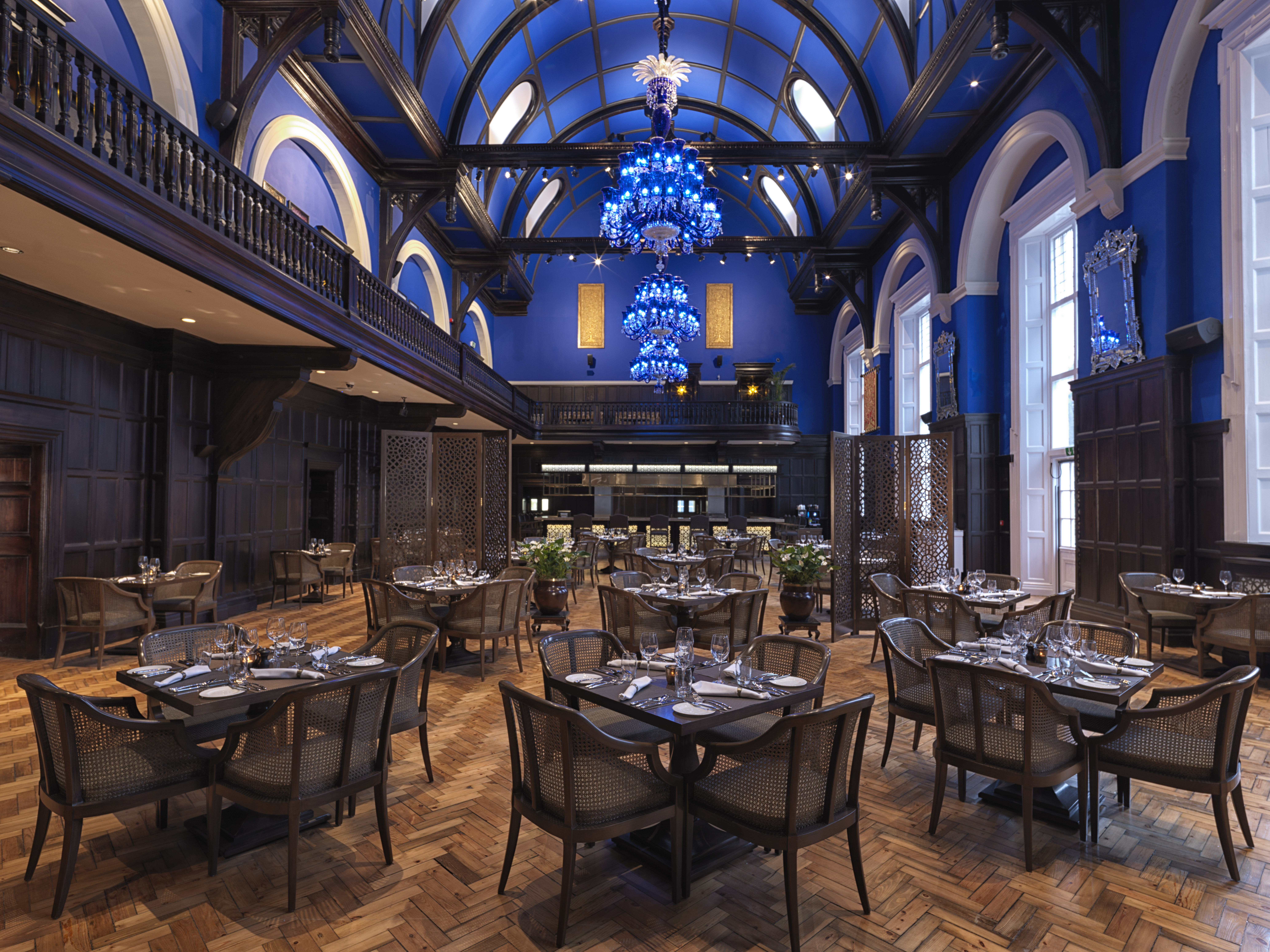
Part of the experience at LaLiT is the “healthiest and tastiest” grubs offered to the guests, ranging from international cuisines to vegan food, farm fresh to organic. A lot of what goes on your place has to do with the location of the hotel. “We are now becoming an environment-friendly company and so I’m promoting zone diet. I want to reduce as much carbon footprint as possible, particularly for Mangar. Here, whatever is served is actually grown in the region and that is now going to be the concept for all my hotels and my restaurants. I don’t have to have caviar shipped in from Russia. I would rather go for the local prawn, the local jheenga, served correctly, but fresh. That is the mood I’m in. That is the direction I’m sending my team to go in,” says Keshav, who says he has got to understand what the city can give him in terms of ingredients and decide the menu accordingly. “No point in making a cowboy restaurant if beef is banned. So, the point is to understand what I can get locally and around me and then after that start planning. This is the basic and this is what a lot of people miss when they are opening a restaurant. Ingredients matter the most,” he says.
Keshav, who believes that culture is linked with cuisines and customs, keeps an eye out on the latest global food trends to stay abreast with the innovations. At Nannery, Keshav’s brainchild, chefs rustle up rotis, kulchas and naans with theatrical
flourish. They are paired with an assortment of wine from around the world.
Keshav has also pioneered a change in the hotel industry’s outlook towards the LGBTQI community. Mayamma, India’s first drag queen, performed at Kitty Su in Mumbai. Thanks to Keshav, gender sensitivity and inclusivity have become part of the group’s ethos. His avowed aim: Change the notion of India as a non-inclusive country worldwide by bringing all the marginalised communities into mainstream. Tall order that, but Keshav is not meant for meaner things.
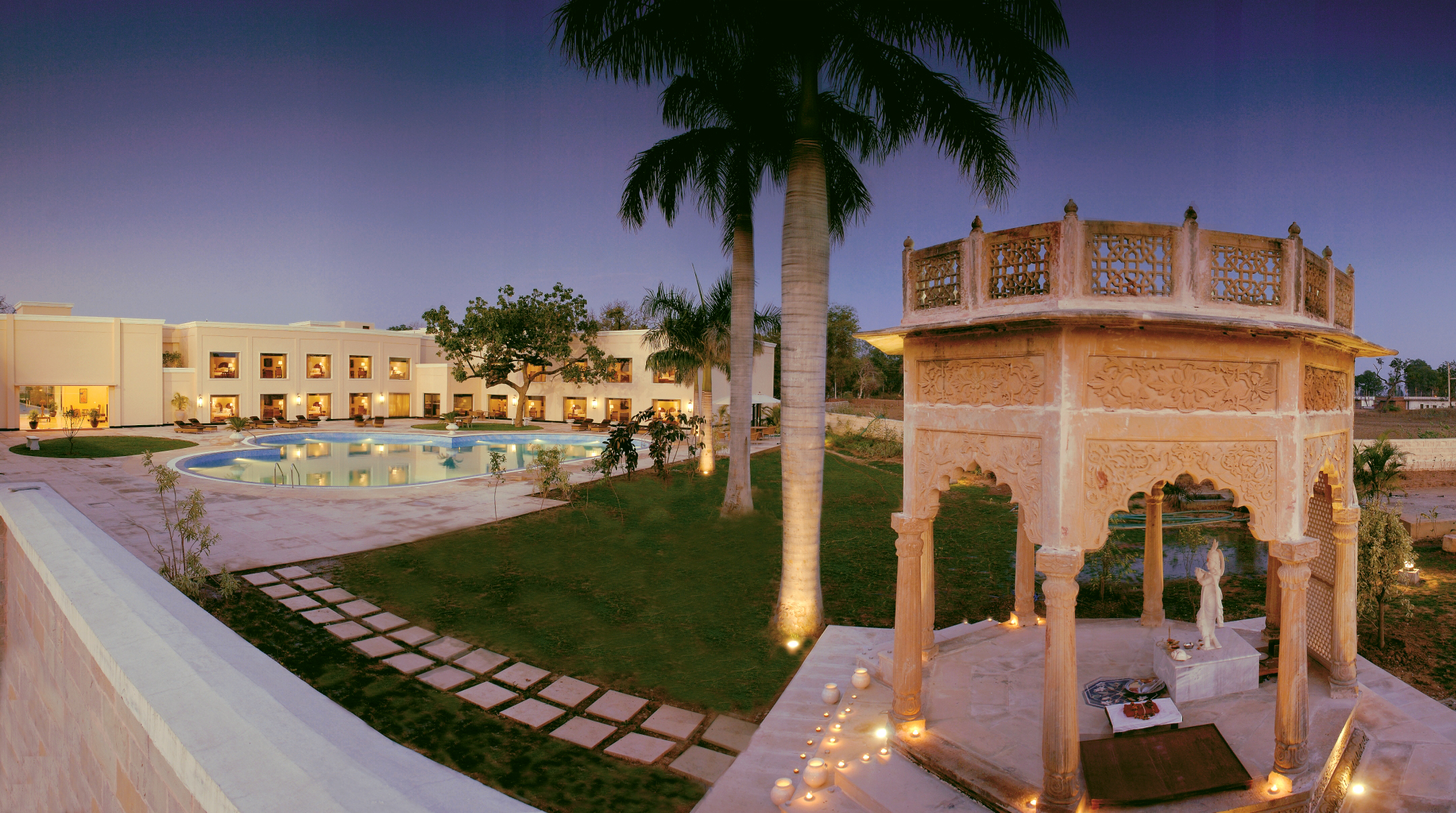
The LaLiT Khajuraho
The Outsider
In a constantly evolving industry, what perhaps has helped Keshav is the “outsider perspective”. He says, “I have always looked at the industry as an outsider. It’s an industry where one needs to gather and there is so much that is happening. I do certain things that I don’t think anybody else in the industry has done or will want to do or will want to take the initiative of doing,” says Keshav, adding that it gives him an advantage as well as a disadvantage. “May be I don’t work well in the group, but I definitely work well with a different perspective. There is so much to learn from this industry, there is so much to innovate,” he says.
The industry has seen phenomenal growth, thanks to the boom in the tourism sector worldwide. Things, closer home, have changed too, with hotels and restaurants mushrooming in cities to the extent that “nobody cares about”. Earlier, while people would make an effort to go out for dinner, now “everybody wants food at the house”. Keshav is attuned to these changing needs and moods of the market. “I have now tied up with Swiggy and Zomato to do home delivery. And we are one of the very few hotels that are actually doing home deliveries or that have tied up with a home delivery service. We are the only hotel chain to actually have physical food trucks. And being proud of it,” says Keshav. Part of that pride comes from not shying away from the changing lifestyles and admitting that every customer — whether they afford 500 rupees or 50,000 rupees — is important. It also comes from not thinking that kitty parties, for example, are to be looked down upon. “We have to embrace them and evolve with them, pushing not just female kitty parties, but also male kitty parties,” says Keshav, adding that hospitality is a very dynamic industry. “What I have understood is that if you’re not growing and if you’re not learning, then this is not the industry for you. I have just specifically talked about F&B, but then there is so much of innovation that is happening in the bedrooms. There’s so much innovation that has happened in terms of redefining luxury. And also now understanding, after opening a hotel in London, what is luxury for the UK market and what luxury means to the Indians,” says Keshav, proffering what he calls his “very outsider’s perspective”.
Elaborating upon the idea of luxury and the East and West parallels, he says, “In London, if a person carries your bag to your bedroom, it is luxury. However, here it is completely taken for granted. If somebody unpacks my bag and puts it in the cupboard, then it’s a super luxury hotel,” says Keshav, adding that luxury no longer has to be about being “gold-plated” or about crystal champagne. Today, he says, luxury is linked to the services you provide, taking into account the value for money. In London, for instance, The LaLiT has an espresso machine in every room which makes people go “wow”. These are some of the things that Keshav has done to go beyond the usual.
Dream Destinations
Every destination developed by the group, says Keshav, blends the place identity with hotel identity. “This merging together really fits well into the whole pattern and gives unique identity to all the hotels,” he says. One of the aspects that he attributes to his mother is the idea of not making The LaLiT a “cut-copy-paste” hotel. He says: “You can go to any LaLiT and you’ll notice that everyone is doing Namaskar. You’ll find a few nuances that are similar, but no LaLiT hotel is like a cut-copy-paste. A lot of hotel chains end up becoming cut-copy-paste — the buildings, the lobbies, the rooms and the configurations look the same. That is something that has always set us apart,” says Keshav.
Swimming Pool at The LaliT Bekal
Keshav says that while The LaLiT follows the norm and trends within the industry, each of its hotels looks different. “Each hotel also pays homage to the city that it’s built in. For example, a Goa hotel is completely inspired by Portuguese architecture because it was a Portuguese colony. Kolkata is completely inspired by the British. Even the French influence or the Mughal influence can be seen. It is the city that has seven different influences. Nothing screams Delhi more than having the British Raj paintings by M F Hussain or Satish Gujral,” says Keshav, adding that the artists that you see in the group’s hotels across cities are all local artists from that particular city. “We don’t have a single foreign artist anywhere,” says Keshav.
The group’s hotels, he says, have always “unique” destinations. In Bengaluru, for instance, the theme is garden since Bengaluru used to be called the city of gardens. The LaLiT London, on the other hand, is a quintessential London building, with Western façade. “From the inside, it’s very Indian because we’re an Indian brand. So, it’s a mixture of Indo-English elements,” says Keshav.
Examples of developing destinations include kabaddi matches in Bekal because that region of Kerala is famous for kabaddi. “We started Dras Polo in Kashmir which used to be very big. We have revived that after the trouble that started there. It’s a community that we’re building. With the amount of jobs that we have given to the village in Goa, I can take pride in saying that my parents developed South Goa. Today, people talk about how great South Goa and Palolem Beach are. It’s all thanks to the hotel. We had a huge hand in bringing the Delhi crowd for weddings there. We have a huge hand in bringing golf course there. Nobody at that time did a golf course on the sea and my father had the vision to do that because it’s very tricky to have a golf course in the sea as the wind can blow the ball. And it is one of the trickiest golf courses in India and still maintained in a big way. That’s why these are so inspirational. Nobody had the guts to own a hotel or a piece of land in northern Kerala. Everyone flocked to Kochi or Trivandrum and nobody wanted to touch northern Kerala, but my dad went there,” says Keshav, with a glint in his eyes.
The latest property that reflects the group’s quest to develop a destination is The LaLit Mangar. “It’s like a dream which you walk in and you realise how much passion has got into everything that has been designed,” says Keshav.
Mangar, he says, has completely been the “CMD’s baby” since the time the land was bought to its opening. “This is her secret project. It’s an experiential hotel where we are selling an experience. It is the first-ever hotel in India to use rammed earth technology that came from Canada and is now also being used in Australia. The use of the technology meant that whatever was blasted was reused in the walls, roofs and ceiling, and nothing was wasted or taken away from the nature there. Whatever has been there is there and everything else has been built around the nature. It is a tricky and difficult project and not an easy one to have opened, but in terms of location it’s amazing,” says Keshav. The location’s other advantages are its connectivity and serenity. “It’s earthy and luxurious,” says Keshav, with the words taking him back to the “outsider’s perspective”. He says: “Earthy and luxury were two words never used in the same sentence earlier. Whereas, with Mangar, it’s exactly that. We don’t have a name for the restaurant. We’re just calling it the dining room. The bar is just the bar. We want people to experience every room with a view. We have star-gazing. Our in-room dining is done in picnic baskets. Our Indian food is served in dabbas in the room because it’s just giving respect to the surroundings that you are in. And we’ve also got the time-reversal spa over there.” That indeed sounds like a dream destination.
Competition
So, how does Keshav look at the competition? How does he keep himself clued in with the changing times? “There are a lot of disrupters that have come up. The point is how to make the disrupters work for you. For instance, how do you get an Ola or an Uber or a Swiggy to work for you? To go to them and get them work with you is the way I see it,” says Keshav, who “loves” these “disrupters” since the country needs to have them, welcoming international brands and hotels.
The LaLiT, in some sense, also sails against the wind. “We own and manage all our properties. We don’t do any management contracts just yet. We are proud to retain our Indian identity. While the world is going to accept light ideas and management contracts as well as tying up internationally, we’re doing the opposite,” says Keshav.
To the young scion, disrupters are the biggest issue right now. “When Airbnb comes in a big way in the country, we will have to relook. The industry needs to come together to increase their bargaining powers with the customers. If we truly want to learn or do revenue management, then the hospitality industry needs to follow the same rules that we are applying in the airlines industry. If you are booking a seat for one and, two minutes later, you are booking the seat next to it, the pricing is three times higher, but the customers accept it. I think the hospitality industry needs to start doing the same,” says Keshav, who feels that among the major bottlenecks for the industry are the infrastructure that is “lagging massively behind” and poor connectivity. “It’s not very easy to get to Bekal. It’s not very easy to get to Khajuraho. It’s not very easy to get to Pondicherry. These are issues that still need to be resolved,” he says.
Exclusively Inclusive
With an eye on making The LaLit all-inclusive, Keshav says that he has made infrastructural changes where it’s mandated to have differently abled toilets for public as well as the team. “Similarly, we are tapping into another untapped informal sector workforce of the transgender community. Often, they end up on the streets and we are constantly complaining about there being not enough trained people, not enough hospitality schools. What about these communities which are deeply marginalised? Why aren’t we looking at them? May be I’m a disrupter in that aspect,” says Keshav.
In a non-discriminatory India, Keshav feels, everybody should be equal, gender no bar. “We are a country that was ruled by the Britishers for close to 200 years so clearly we are accommodating. We need to go into the history of our country. Kama Sutra is very much a part of our country. It still is. A lot of guilt and close-mindedness are actually post-Mughal and British rule. Homosexuality was banned by the British under section 377. We didn’t even talk about it. Why? Because it was normal for us. We had eunuchs in the courts of all the kings. They had people of the third gender for years. They are mentioned even in our scriptures,” says Keshav, arguing that there is no place for close-mindedness in the modern India.
Carving an identity
All that Keshav is, all that he stands for, is reflected in what he is doing right now. We meet at Kitty Su in New Delhi. “It is the massive reflection of the personality that I am. I do not believe in discrimination. I do not believe in gender bias. I believe in gender being non-binary. I do not believe in discriminating somebody on their caste, sect and religion as well as on their sexual orientation or their gender. When you come to Kitty Su, you know you are not going to find anything conservative. So, you are already of a mindset that I’m coming to be an open person,” he says.
Keshav says he always focuses on positivity, ignoring the negativity. “If somebody is negative or is trying to be a hater or is blocking me or bringing me down, I ignore and move forward. I use it as an opportunity. This is what I tell my team: If you have a person who had a terrible experience at the LaLiT and turns around and says, ‘I’ll never recommend it’. You need to take the opportunity to take that person and make him into a lover and not a hater. So, you make that person from being a detractor to being a promoter.”
Entrepreneurs, he says, have to lead the country since that’s “inherent in our DNA”, whatever the political scenario might be, and whatever the legalities might be. “Entrepreneurs have always led the way. Recently, I was a part of the NITI Aayog’s young CEOs’ forum. I spoke in front of the PM and I talked about the LGBTQI issues. I asked the CEOs a simple question: Can you formulate non-discriminatory HR policies for your company? I have six of them. We are talking about marginalised communities. I asked what the private sector can do to bring to the mainstream a deeply marginalised and underrepresented community of the LGBTQI. I know it’s risky and there are consequences to it. But if I feared anything, I would not be able to get up in the morning. If my father feared, we would not be having a hotel in Srinagar, we would not be having a hotel in Bekal. We would not be having a hotel in the UNESCO world site like Khajuraho which has no direct flights from Delhi,” says Keshav, who has a keen interest in theatre and in filmmaking.
In school, Keshav was a part of the theatre group and the debating society. Does he regret not studying filmmaking? Well, he says, he might end up making a film some day. In fact, he has already made a short film on Kitty Su. “We just recently did another short movie which worked beautifully with my director. I’m a fan of the art of filmmaking. I’m a fan of the art of theatre and acting,” he says.
However, all said and done, Keshav would like to be known for being somebody who brought in a massive change in the way people think. “I would also like to be known as the enfant terrible, a disruptor in the hospitality industry who took something negative and turned it into positive. I would like to be somebody who opens people’s minds,” he says.
Quick Takes:
On food and restaurant
So far as Indian food goes, there’s no other better restaurant than Baluchi. Now that we have a Baluchi in London, I don’t think that anything beats the kind of quality that we serve. I’m a big fan of Bengali cuisine. I love Bengali, Keralite and Kashmiri cuisines. In International cuisine, since I’m a vegetarian, Italian goes very well.
Best music
All the artists that I have invited to Kitty Su so far are my favourite artists. My music taste keeps changing, but right now I’m more into electro pop, electro rock also massively influenced by French House.
Favourite destination
My favourite destination is Paris. Nothing will change that. And my other favourite destinations are Khajuraho, Bekal and Srinagar.
On social media
Social media gets you into the minds and the doorsteps of everybody. It makes you reach out to so many people and it’s important. Lots of people use it as a media and marketing tool. I recognize it as a revenue stream. In fact, there should be a different vertical called social media since there are massive revenues involved.
On rivals
I learn from everyone. Everyone is a competition and everyone is there to learn from. You have to give respect to people who were there before and you have to give respect to some of the stalwarts. For instance, The Oberoi is a chain that really established their brand India before brand India was cool across the world. Of course, Taj has done it too, but very differently. In terms of excellence in service, nothing beats The Oberoi. However, I won’t call them competition. I’ll consider them as somebody I personally look up to.
On writers
I keep going back to Virginia Woolf. The Palace of Illusions by Chitra Banerjee Divakaruni spoke to me. Vikram Seth’s The Suitable Boy, too. He is a great author and a huge propagator and voice for the LGBTQI community. J.K. Rowling because I love Harry Potter. And JRR Tolkien because of The Lord of The Rings.
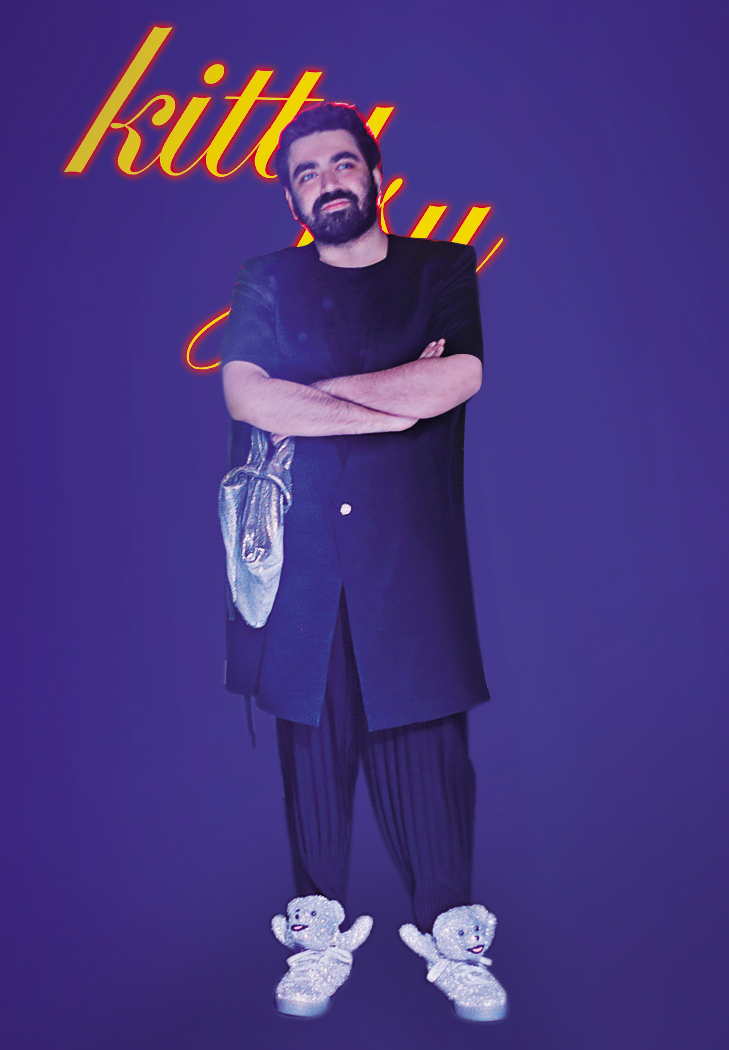
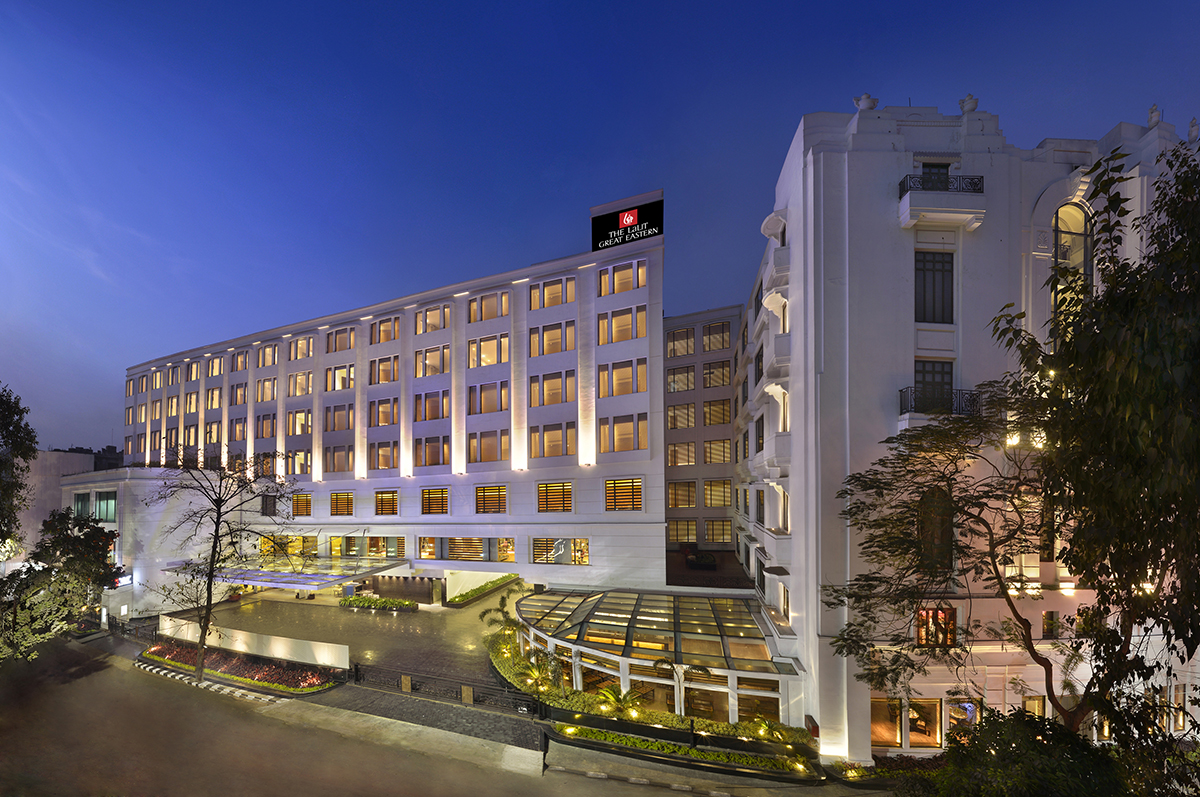




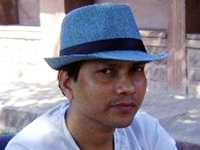
.jpg)

 The LaLiT Khajuraho
The LaLiT Khajuraho